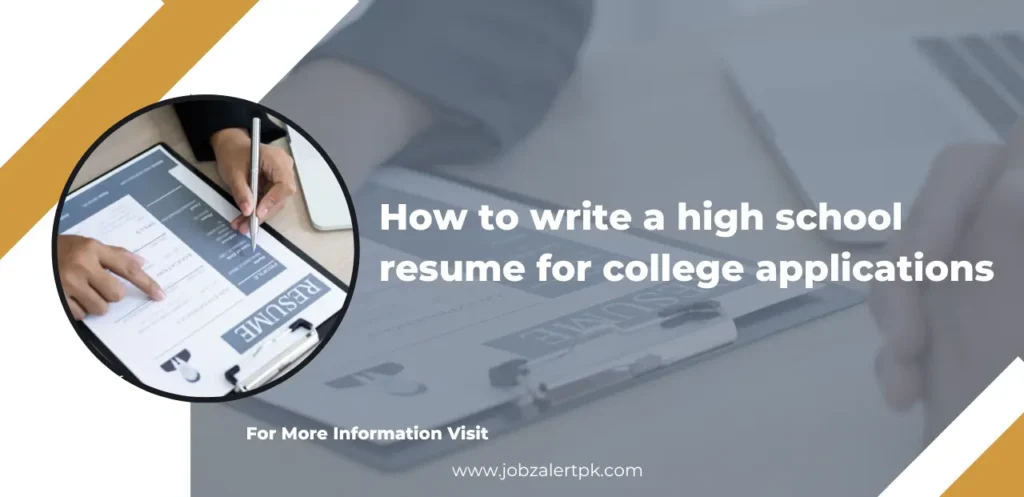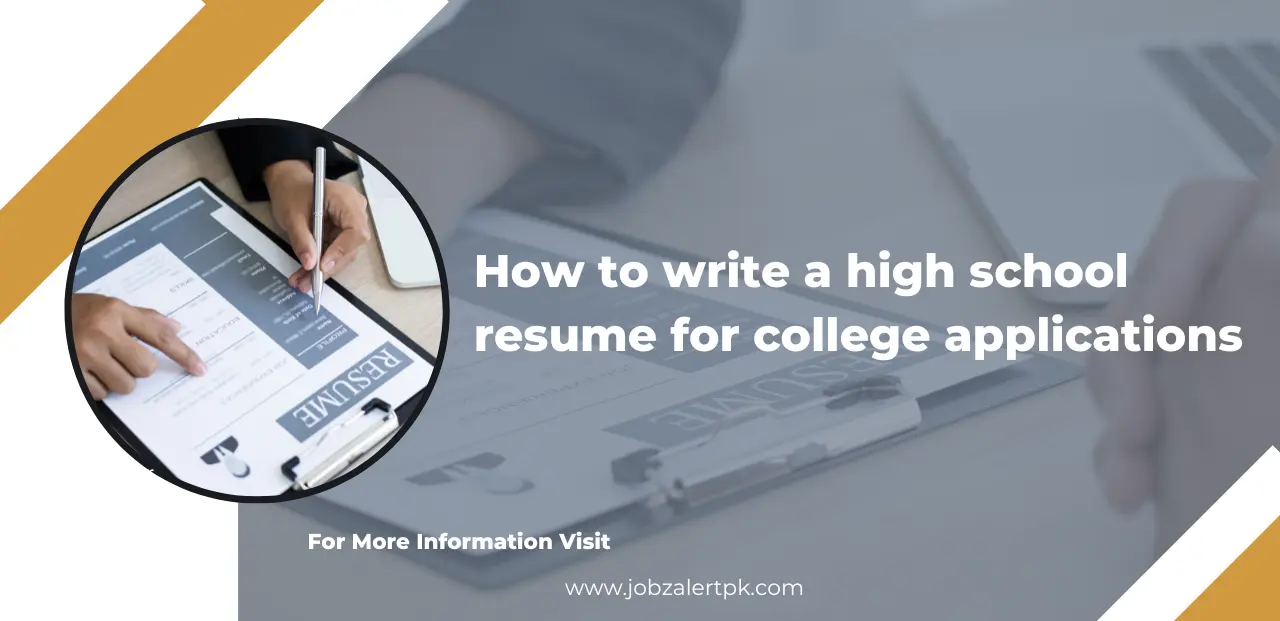Applying to college can be an exciting and nerve-wracking experience. One of the most important documents you will need is a resume. A high school resume helps you showcase your achievements, skills, and experiences in a way that tells colleges who you are beyond your grades. Below is a step-by-step guide to writing an effective resume for your college applications.How to write a high school resume for college applications
1. Start with Your Contact Information
The first section of your resume should be simple but essential: your contact information. This makes it easy for college admissions officers to get in touch with you. Here’s what to include:
- Full Name: Your first and last name.
- Phone Number: A number where you can be reached, preferably your cell phone.
- Email Address: Use a professional-sounding email (ideally, a combination of your name).
- LinkedIn Profile (optional): If you have a LinkedIn profile or personal website, include the link.
For Free Resume Builder
2. Create an Objective or Summary (Optional)
An objective or summary is a brief statement (one or two sentences) that explains who you are and what you want to achieve. This section is optional, but it can make a great impression if written thoughtfully. Here’s an example:
“Motivated high school student with a passion for environmental science, seeking to apply my leadership skills and academic achievements to a college program focused on sustainability.”

3. List Your Education
This section should include basic information about your high school education. Be sure to highlight any academic achievements or coursework that shows your preparedness for college:
- High School Name: The name of your current high school.
- Graduation Date: The month and year you expect to graduate.
- GPA (optional): Only include this if your GPA is strong, typically 3.5 or higher.
- Relevant Coursework: List advanced courses such as AP, IB, or honors classes.
- Awards/Honors: Mention any special academic awards or recognitions like honor roll or scholar athlete.
4. Highlight Your Extracurricular Activities
Colleges want to see that you’re a well-rounded student, so it’s important to include your extracurricular activities. These can show your leadership, teamwork, and passion. Include things like:
- Clubs: Leadership positions or notable contributions.
- Sports: Mention your role on the team, whether you were a player, captain, or manager.
- Volunteer Work: Community service or charity work shows you’re involved and care about others.
- Arts: Participation in music, theater, or other creative activities.
For each activity, mention your role and any achievements. For example, if you were the captain of the soccer team, highlight your leadership skills and any championships you won.
5. Include Work Experience (If Applicable)
Even if you haven’t had a full-time job, any work experience can set you apart. This could include part-time jobs, internships, or even unpaid work such as babysitting. Employers look for skills that can translate to a college setting, such as responsibility, time management, and communication. Here’s what to include:
- Job Title: What was your role (e.g., cashier, intern, tutor)?
- Company Name: Where did you work (name of the company or organization)?
- Dates: When did you work there (month/year)?
- Key Responsibilities and Achievements: Focus on transferable skills. For example, “Managed customer inquiries” or “Assisted in organizing events.”
6. List Skills and Achievements
This section helps colleges see your strengths quickly. List both hard and soft skills that are relevant to your college goals. Here’s what to include:
- Hard Skills: These are specific, teachable abilities such as coding languages (e.g., Python), graphic design, or fluency in a foreign language.
- Soft Skills: These are personal traits such as teamwork, communication, or time management.
- Certifications or Special Training: If you have any certifications like First Aid, CPR, or others, include them here.
- Awards and Honors: Highlight any achievements, such as academic awards, competition results, or leadership recognition.
7. Organize the Information Clearly
Your resume should be easy to read and look professional. Here are some tips for formatting:
- Use Bullet Points: This makes the resume easier to scan quickly.
- Keep it One Page: High school resumes should be concise and fit on one page.
- Use Simple Fonts: Stick to fonts like Arial, Times New Roman, or Calibri in 10-12 point size.
- Maintain Consistency: Use the same format for dates, job titles, and descriptions across your resume.
8. Proofread Your Resume
Once you’ve finished your resume, make sure to proofread it. Look for any spelling or grammatical mistakes, and check the formatting. A clean, error-free resume shows attention to detail, which colleges appreciate.
Conclusion
A high school resume is an essential tool in your college application process. It allows you to showcase your academic achievements, extracurricular activities, work experience, and skills in a way that demonstrates your potential. By following these steps and presenting your information clearly, you can create a resume that stands out to college admissions officers and helps you take the next step toward your future.
Also Read About How To CV For Students Applying To University
FAQs
Should I include a photo of myself on my resume?
No, it’s best to avoid including a photo on your resume. College admissions officers are interested in your achievements and qualifications, not your appearance. A photo could distract from the important information you are presenting.
How should I list work experience if I’ve never had a job?
If you haven’t had a paid job, don’t worry! Focus on volunteer work, internships, or unpaid experiences that have helped you develop skills. Babysitting, pet-sitting, helping at a local charity, or assisting a family business are all valuable experiences that can be included on your resume.
How long should my high school resume be?
Your resume should typically be one page long. Since you’re still in high school, you may not have a long list of experiences, so keep it concise and focused. Highlight your most impressive and relevant achievements to make a strong impression.
